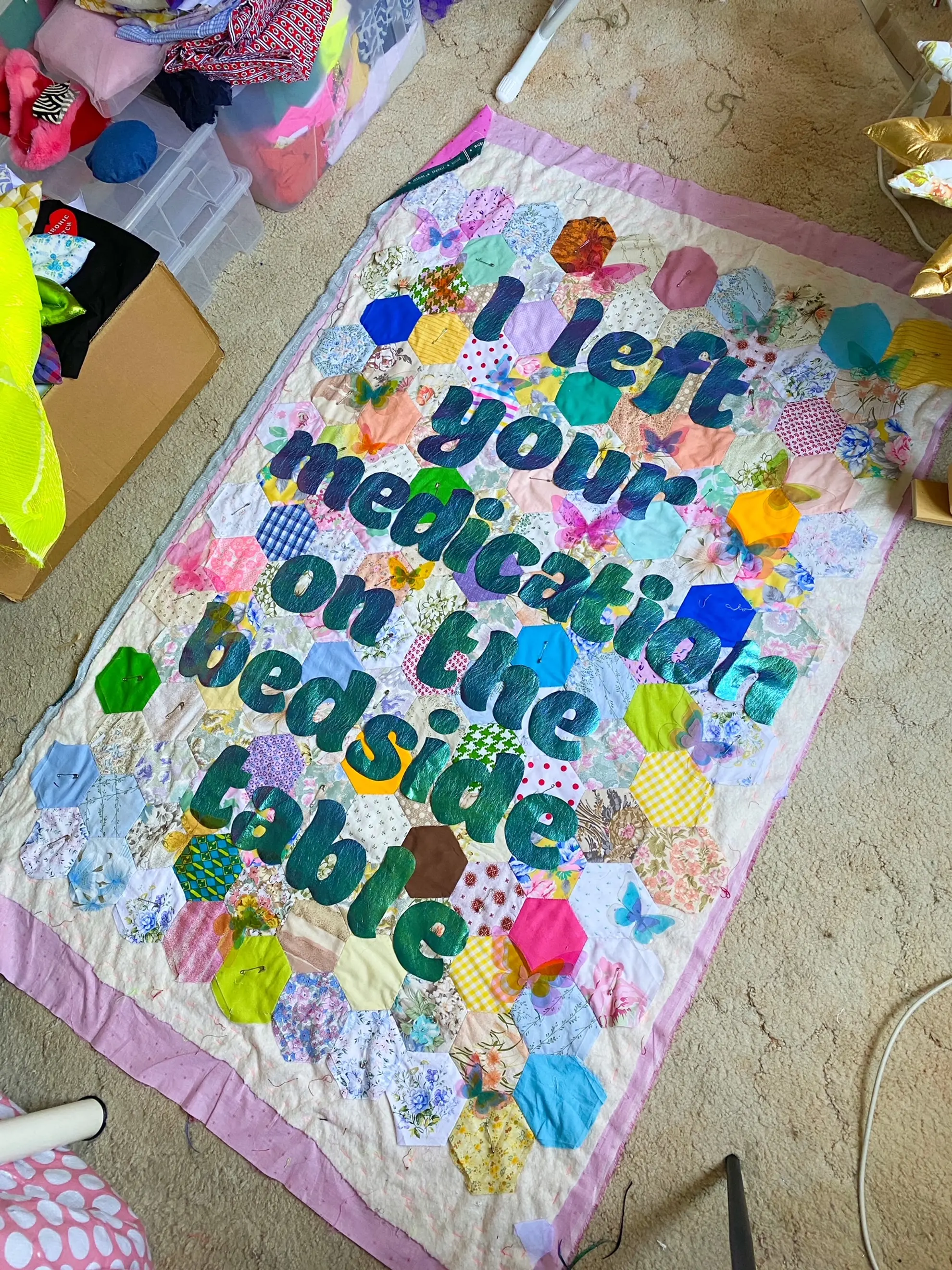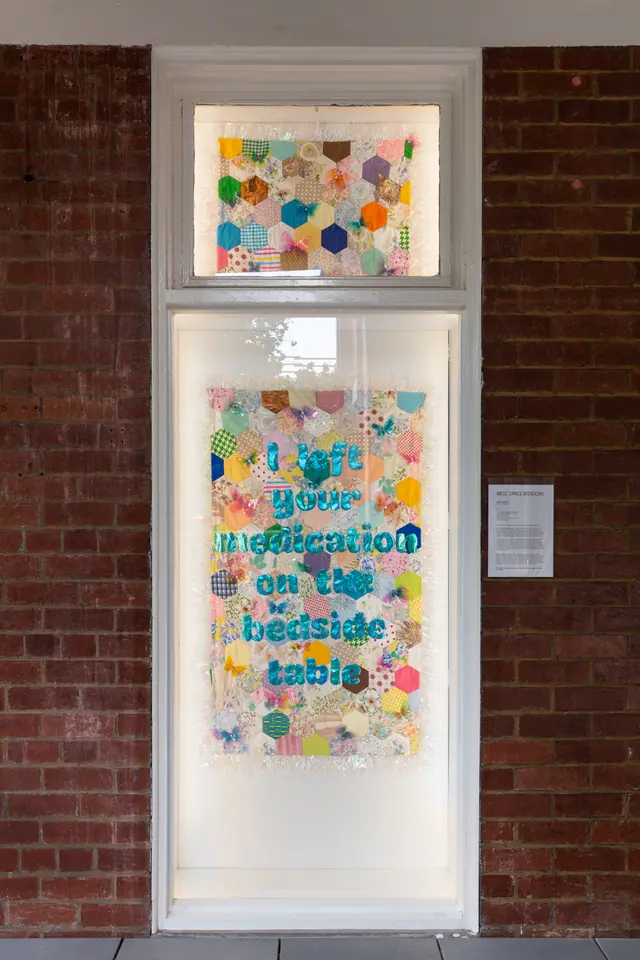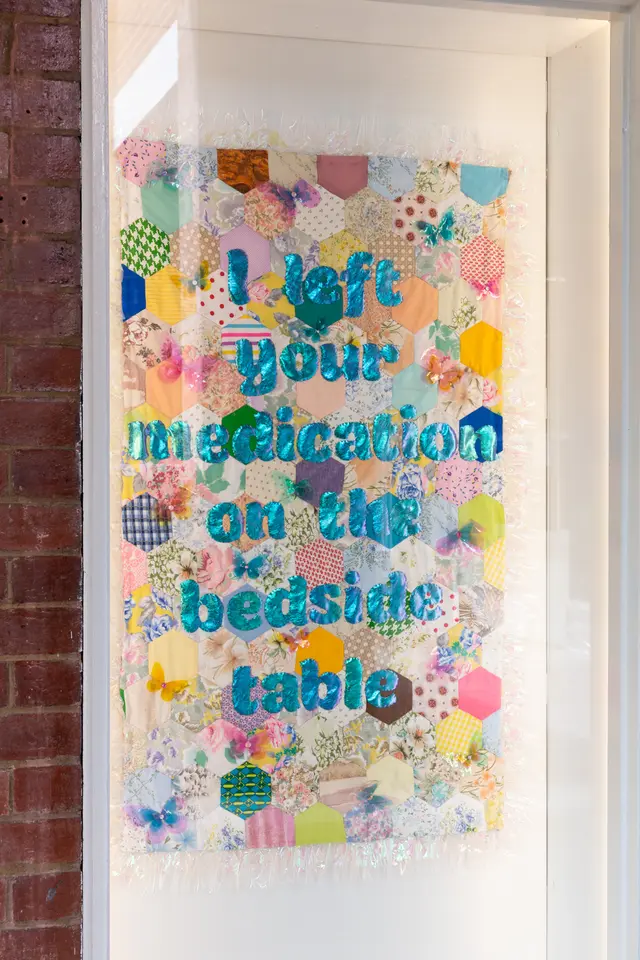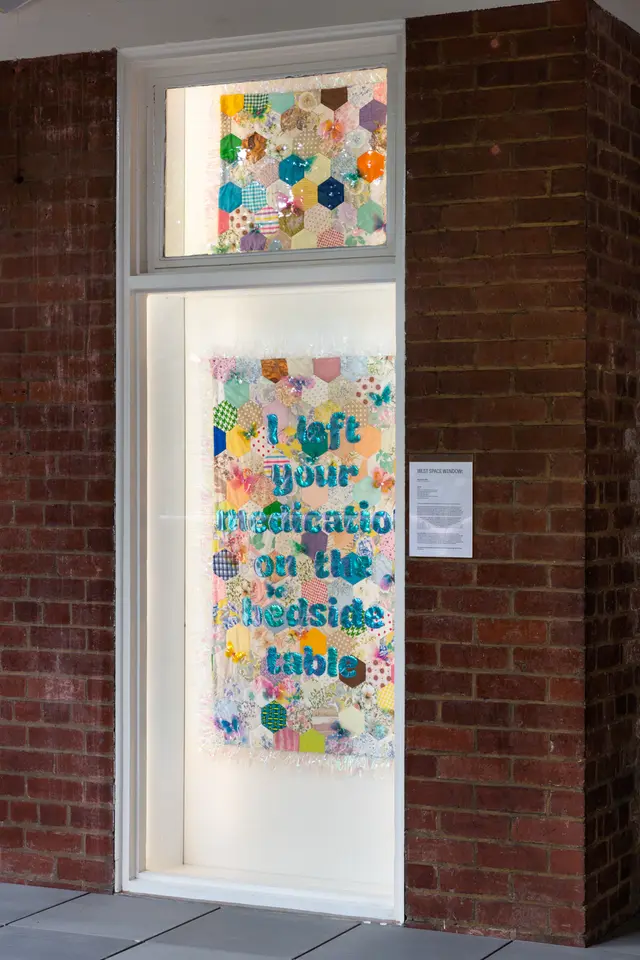“Soft Spot”
Amy Claire Mills
22 Jan → 27 Feb 2022
Window

“I am disabled. My disabled identity has shaped how I interact and hold space within society.” — Amy Claire Mills
Amy Claire Mills presents Soft Spot in the West Space Window.
The intimate and complex narrative of how disabled people experience romantic love is hard to quantify. Where do we even start to unpack it and what depictions in popular culture feature true representations of disability experience? Growing up all the romantic stories that included disabled/chronically ill representation were tragic love stories. Where the disabled person dies and exists solely to help the non-disabled person grow and appreciate life more! Have we ever met the expectations of accessibility, language, visibility, or engagement to be able to tell these stories?
The primary objective of this quilt is to challenge the accepted narratives of love, vulnerability, desire, sexuality, empathy, and care. Ablest narratives are historically deeply entrenched in conversations of love: the notion that to give and receive love your ability to do so must be equal. That desirability or worth within the relationship and dependent on perceived hierarchies and power structures, even more so when your carer is also your lover. Reframing the concept of love and breaking down the socially-constructed ideas of disability, this piece brings visibility to the untold love story and creates a homage to all disabled people establishing that disability isn’t the problem, the lack of representation is.
The West Space Window is supported by City of Yarra and viewable during all Collingwood Yards open hours.



Amy Claire Mills is Sydney-based artist living and working on unceded Gadigal and Wangal land. Her practice critiques and examines the politics surrounding the disabled body, disrupting the socially-constructed idea of disability. Using distinctive, colourful and bold mediums her work encourages the observer to challenge their own paradigms and internalised preconceived bias, with the intention of deconstructing ableism.